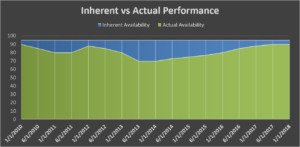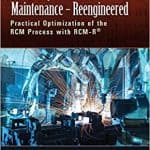
In order to know if all RCA is the same, we first have to define ‘What is RCA?’ On the surface this seems quite simple, but unfortunately it is quite complex. When I train or present speeches around the world, I often poll my audiences about how they define ‘RCA’. The fact is I will get as many answers, as I have people that I ask. This is unfortunate because there is no universally accepted definition of what ‘RCA’ actually is. Are there definitions out there, absolutely! There are hundreds of them. Various regulatory agencies have their own such definitions, as do corporations and companies. However, when definitions differ between agencies, corporations and industries, it is hard to measure the effectiveness of ‘RCA’ across the board, because everyone considers whatever they are doing, as ‘RCA’.






 I recently had the opportunity to teach a Body of Knowledge course, which was full of great questions from the students. One of the questions was about inherent vs. actual availability. This had me thinking about the choice that organizations make on how they choose to run their business and more importantly, their resources.
I recently had the opportunity to teach a Body of Knowledge course, which was full of great questions from the students. One of the questions was about inherent vs. actual availability. This had me thinking about the choice that organizations make on how they choose to run their business and more importantly, their resources.
